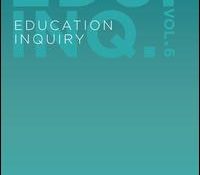tandfonline.com – Participation in science in secondary and higher education in Scotland in the second half of the twentieth century
tandfonline.com har udgivet en rapport under søgningen “Teacher Education Mathematics”: ABSTRACT Formulae display:?Mathematical formulae have been encoded as MathML and are displayed in this HTML version using MathJax in order to improve their display. Uncheck the box to turn MathJax off. This feature requires Javascript. Click on a formula to zoom. ABSTRACT Scientific and mathematical education has expanded in most education systems in the twentieth century, especially in the second half when there emerged the perception among policy-makers that science and technology were essential to a flourishing economy and to individual opportunity. Scotland provides a useful case study of the expansion, for two reasons. One is that it has included natural science in its emerging secondary-school curriculum at an early period by international standards, well before the middle of the… Continue Reading

